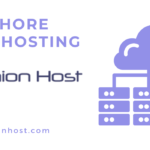Looking to ensure privacy and security for your website in the digital era? Choosing an offshore host might just be the answer you’re searching for. With the ever-increasing threat of cyber attacks and data breaches, safeguarding your online presence has become more critical than ever.
When it comes to hosting options, offshore hosting has several advantages that make it an attractive choice. Firstly, offshore hosts provide a higher level of privacy protection, shielding your website and data from prying eyes. Additionally, these hosts often offer top-notch security measures to safeguard against potential threats, giving you peace of mind.
Moreover, hosting your website offshore can also offer benefits such as better data protection laws, enhanced censorship resistance, and flexibility in content restrictions. By choosing an offshore host, you can ensure that your website operates in an environment conducive to your specific needs.
In this article, we will delve deeper into the advantages of choosing an offshore host for your website, exploring how it can enhance your privacy and security in the digital era. So, keep reading to discover why offshore hosting might be the right choice for you.
Understanding privacy and security concerns in the digital era
In the modern digital landscape, the need for robust privacy and security measures has become paramount. As more of our personal and professional lives migrate online, the risks of data breaches, cyber attacks, and online surveillance have escalated significantly. Cybercriminals are constantly devising new and sophisticated methods to infiltrate systems, steal sensitive information, and wreak havoc on individuals and businesses alike.
Moreover, the growing prevalence of government-led surveillance programs and the increasing commercialization of personal data have further exacerbated concerns about online privacy. Individuals and organizations alike are increasingly wary of the potential misuse of their data, leading to a heightened demand for solutions that can safeguard their digital assets and maintain their autonomy in the virtual realm.
In this context, the choice of website hosting becomes a critical decision that can have far-reaching implications for an organization’s privacy and security posture. Traditional onshore hosting options may no longer be sufficient to address the evolving threats, prompting many to explore the advantages of offshore hosting as a means of enhancing their digital resilience. Understanding the nuances of these hosting options and their respective benefits is essential for making an informed decision that aligns with one’s privacy and security requirements.
Benefits of choosing an offshore host for your website
Choosing an offshore host for your website can offer a range of compelling benefits that can enhance your overall privacy and security in the digital era. One of the primary advantages of offshore hosting is the heightened level of privacy protection it provides. By hosting your website in a jurisdiction outside of your home country, you can effectively shield your data and online activities from the prying eyes of domestic authorities, as well as potential cybercriminals.
Offshore hosts often operate under stricter data privacy laws and regulations, making it more challenging for unauthorized parties to access or misuse your sensitive information. This is particularly beneficial for organizations or individuals who handle highly confidential data, such as financial records, personal health information, or intellectual property. By entrusting your website to an offshore host, you can rest assured that your data is safeguarded to the highest standards, reducing the risk of costly data breaches and reputational damage.
Furthermore, offshore hosting can offer enhanced security measures that go beyond what is typically available with onshore hosting options. These hosts often invest heavily in cutting-edge security technologies, such as advanced firewalls, intrusion detection and prevention systems, and robust encryption protocols. This multilayered approach to security can provide an additional layer of protection against a wide range of cyber threats, including DDoS attacks, malware infections, and unauthorized access attempts.
Offshore hosting vs. onshore hosting: A Comparison:
When it comes to website hosting, the choice between offshore and onshore options can have significant implications for an organization’s privacy and security posture. While onshore hosting may be the more traditional and familiar option, it often comes with inherent limitations that can make it less suitable for addressing the evolving challenges of the digital era.
One of the primary differences between offshore and onshore hosting is the level of privacy protection they offer. Onshore hosts are typically subject to the data privacy laws and regulations of the host country, which may not always provide the robust safeguards that organizations require. In contrast, offshore hosts operate in jurisdictions with stringent data protection laws, often going beyond the requirements of their onshore counterparts. This can make offshore hosting a more attractive option for organizations that handle sensitive information or operate in industries with strict compliance requirements.
Another key distinction is the level of security measures employed by offshore and onshore hosts. Offshore hosts, particularly those in regions known for their advanced cybersecurity infrastructure, often invest heavily in state-of-the-art security technologies and protocols. This can include features such as multi-factor authentication, advanced encryption, and comprehensive monitoring and incident response capabilities. Onshore hosts, on the other hand, may not always prioritize security to the same degree, potentially leaving their clients more vulnerable to cyber threats.
How offshore hosting ensures privacy and security
Offshore hosting providers employ a range of strategies and technologies to ensure the privacy and security of their clients’ websites and data. One of the primary mechanisms is the strict adherence to data privacy laws and regulations in the host country. Many offshore jurisdictions, such as Switzerland, Panama, and the Cayman Islands, have established themselves as havens for data protection, with robust laws and enforcement mechanisms in place to safeguard sensitive information.
These offshore hosts often operate under the principles of data sovereignty, which means that the data stored on their servers is subject to the laws and regulations of the host country, rather than the client’s home country. This can be particularly beneficial for organizations or individuals who are concerned about government surveillance or the potential misuse of their data by domestic authorities. By hosting their website in an offshore jurisdiction, they can effectively shield their digital assets from unwanted scrutiny and interference.
In addition to the legal frameworks that underpin offshore hosting, these providers also invest heavily in advanced security technologies and protocols to protect their clients’ data. This can include features such as:
- Highly secure data centers with multiple layers of physical and digital security
- Cutting-edge encryption algorithms and key management systems
- Comprehensive monitoring and incident response capabilities to detect and mitigate cyber threats
- Strict access controls and authentication measures to prevent unauthorized access
- Regular backups and disaster recovery plans to ensure data resilience
By combining these robust security measures with the privacy protections afforded by offshore jurisdictions, offshore hosting providers can offer a comprehensive solution for organizations and individuals seeking to safeguard their online presence in the digital era.
Factors to consider when choosing an offshore host
When selecting an offshore host for your website, there are several key factors to consider to ensure that you make an informed and strategic decision that aligns with your privacy and security requirements. One of the primary considerations is the host’s track record and reputation within the industry. Look for providers with a proven track record of reliability, uptime, and responsiveness to client needs.
Another crucial factor is the host’s data privacy and security measures. Thoroughly research the host’s compliance with relevant data protection laws, the security technologies they employ, and their incident response protocols. It’s also essential to understand the host’s data storage and backup policies, as well as their approach to encryption and access controls.
Geographical location is another important consideration when choosing an offshore host. Some jurisdictions, such as Switzerland, Panama, and the Cayman Islands, are known for their robust data privacy laws and advanced cybersecurity infrastructure. These locations can offer an additional layer of protection for your website and data. However, it’s essential to also consider factors such as political stability, legal frameworks, and the host’s own physical security measures in the chosen location.
Additionally, it’s crucial to assess the host’s customer support and responsiveness, as well as their pricing and service level agreements (SLAs). Ensure that the host can provide the level of support and assistance you require, and that their pricing and SLAs align with your budget and operational needs.
By carefully evaluating these factors, you can make an informed decision that ensures your website and data are hosted in an environment that prioritizes privacy and security, while also meeting your specific business requirements.

Offshore hosting myths debunked
Despite the growing popularity of offshore hosting, there are still several persistent myths and misconceptions that can deter organizations and individuals from exploring this option. It’s essential to address these myths to help dispel the confusion and provide a more accurate understanding of the benefits and considerations of offshore hosting.
Myth 1: Offshore hosting is only for those engaged in illegal or unethical activities.
Reality: Offshore hosting is a legitimate and widely-used solution for a diverse range of organizations and individuals, regardless of their industry or activities. Many reputable businesses, non-profit organizations, and even government agencies utilize offshore hosting to enhance their privacy and security, without any involvement in illicit activities.
Myth 2: Offshore hosts are less reliable and secure than onshore options.
Reality: Offshore hosts often invest heavily in advanced security technologies, data center infrastructure, and robust incident response protocols to ensure the reliability and security of their services. Many offshore jurisdictions have established themselves as global leaders in cybersecurity, with stringent data protection laws and regulations in place.
Myth 3: Offshore hosting is more expensive than onshore options.
Reality: While offshore hosting may come with a slightly higher price tag in some cases, the enhanced privacy and security benefits often outweigh the additional costs. Moreover, the potential savings from avoiding data breaches, compliance fines, and reputational damage can make offshore hosting a cost-effective solution in the long run.
Myth 4: Offshore hosting makes it difficult to comply with local laws and regulations.
Reality: Reputable offshore hosts are well-versed in the legal and regulatory requirements of their host countries, as well as the requirements of their clients’ home jurisdictions. They work closely with their clients to ensure compliance with relevant laws and industry standards, providing guidance and support as needed.
Myth 5: Offshore hosting makes it challenging to access and manage your website.
Reality: Modern offshore hosting providers offer user-friendly interfaces, robust content management systems, and responsive customer support to ensure that their clients can easily access and manage their websites, regardless of the host’s geographic location.
By addressing these common myths, you can gain a more accurate understanding of the benefits and considerations of offshore hosting, empowering you to make an informed decision that aligns with your organization’s privacy and security needs.
Steps to migrate your website to an offshore host
If you’ve decided that offshore hosting is the right choice for your website, the next step is to plan and execute a smooth migration process. Here are the key steps to consider:
- Evaluate your current hosting setup: Thoroughly assess your existing website, including its infrastructure, content, and any dependencies on third-party services or integrations. This will help you identify any potential challenges or considerations that may arise during the migration process.
- Research and select an offshore host: Carefully evaluate the various offshore hosting providers, taking into account factors such as their data privacy and security measures, geographic location, pricing, and customer support. Choose a provider that best aligns with your specific requirements.
- Develop a migration plan: Create a detailed plan that outlines the steps and timeline for migrating your website to the offshore host. This should include tasks such as domain name transfer, website content and database migration, and any necessary configuration changes.
- Backup your existing website: Before initiating the migration, ensure that you have a complete and secure backup of your current website, including all content, databases, and any custom code or configurations. This will provide a safety net in case any issues arise during the migration process.
- Transfer your domain name: Work with your current domain registrar and the offshore host to transfer your domain name to the new hosting environment. This will ensure that your website’s URL remains consistent and accessible to your users.
- Migrate your website content and data: Depending on the complexity of your website, you may need to manually transfer content and data, or utilize automated migration tools provided by the offshore host. Ensure that all content and functionality are successfully migrated without any loss or corruption.
- Configure and test the new hosting environment: Once the migration is complete, thoroughly test your website to ensure that all features, integrations, and functionality are working as expected in the new offshore hosting environment.
- Update your website and marketing materials: Update any references to your website’s hosting location or domain name in your online and offline marketing materials, social media profiles, and other relevant channels.
- Monitor and maintain your offshore hosting: Regularly monitor the performance, security, and compliance of your website in the offshore hosting environment, and work closely with the provider to address any issues or concerns that may arise.
By following these steps, you can ensure a seamless and successful migration of your website to an offshore hosting provider, enhancing your privacy and security in the digital era.
Conclusion: Making an informed decision for your website’s privacy and security
In the ever-evolving digital landscape, the need for robust privacy and security measures has become paramount. As the threats of cyber attacks, data breaches, and online surveillance continue to escalate, organizations and individuals alike are seeking solutions that can safeguard their digital assets and maintain their autonomy in the virtual realm.
Offshore hosting has emerged as a compelling option for those seeking to enhance the privacy and security of their websites. By hosting their digital presence in jurisdictions with stringent data protection laws and advanced cybersecurity infrastructure, organizations can effectively shield their data and online activities from prying eyes, while also benefiting from enhanced security measures and the flexibility to tailor their content to their specific needs.
When compared to traditional onshore hosting options, offshore hosting offers a range of compelling advantages, including heightened privacy protection, superior security measures, and the potential for better data protection laws and censorship resistance. By carefully evaluating the factors that are most important to their organization, such as the host’s reputation, security protocols, and geographic location, decision-makers can make an informed choice that aligns with their specific privacy and security requirements.
While there are persistent myths and misconceptions surrounding offshore hosting, it is essential to address these in order to gain a more accurate understanding of the benefits and considerations of this hosting solution. By debunking these myths and following a well-planned migration process, organizations can seamlessly transition their websites to an offshore host, ensuring the long-term privacy and security of their digital assets.
In the end, the decision to choose an offshore host for your website is a strategic one that requires careful consideration and a thorough understanding of the unique advantages and challenges it presents. By making an informed decision that prioritizes the protection of your digital presence, you can navigate the complexities of the modern digital era with confidence and peace of mind.


